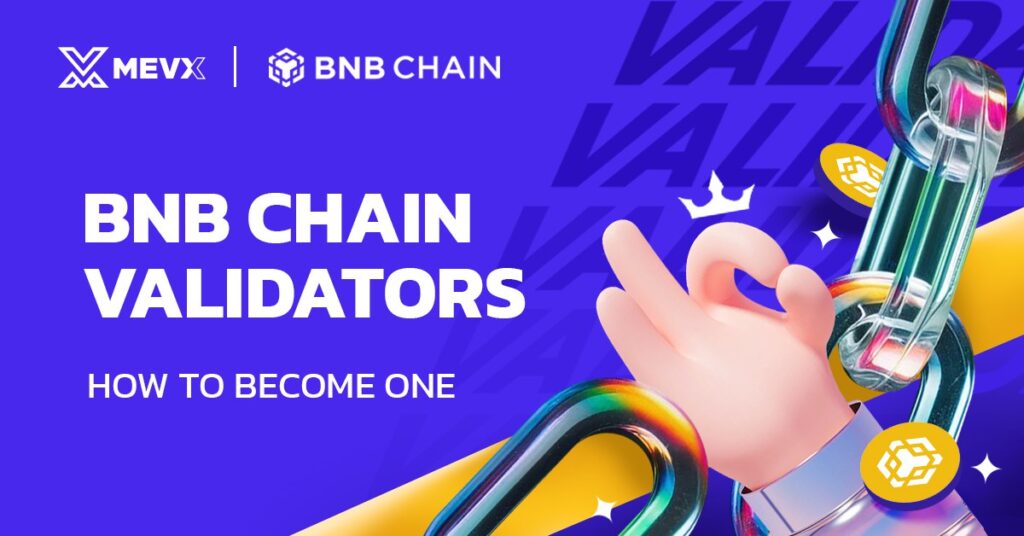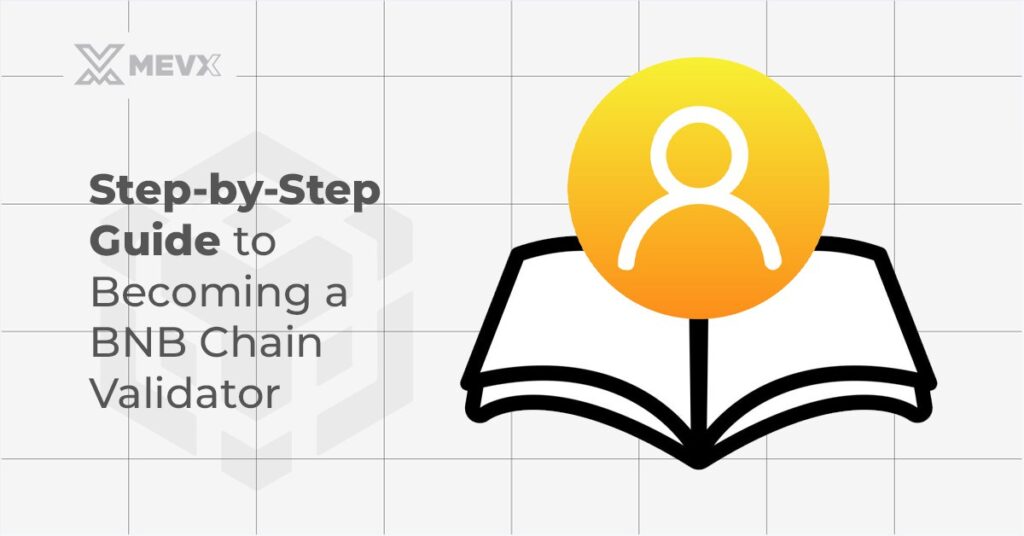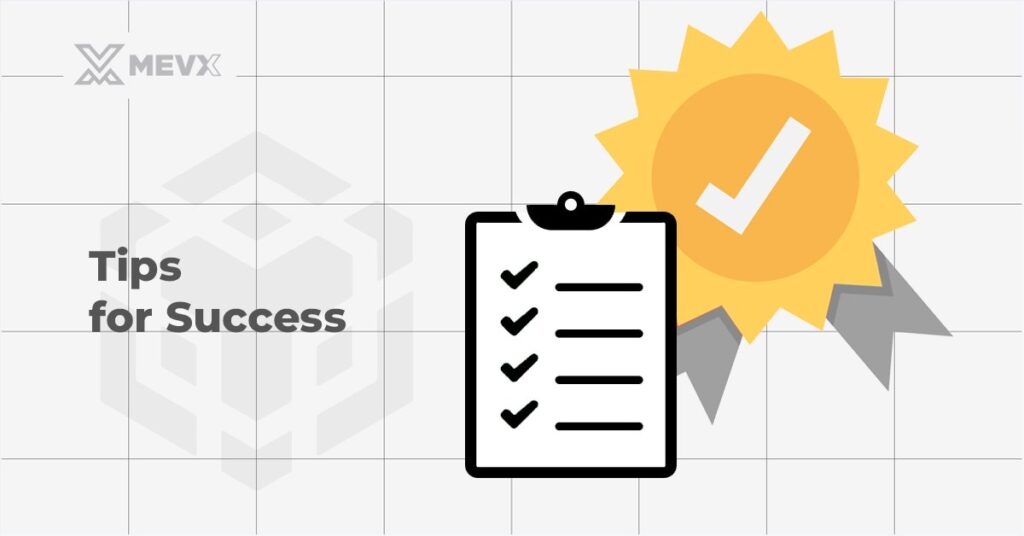The BNB Chain is one of the most popular blockchain networks that employs a distributed group of validators to support the ecosystem while validating the transactions. Validators are the backbone of the effectiveness of the BSC (BNB Smart Chain). If you are interested in supporting the network while getting rewards by being a BNB Chain validator, it is a highly good opportunity to do that. In this article is a complete guide to learning about BNB Chain validators with a simplified guide to being a validator.

What Are BNB Chain Validators?
Validators are nodes that are responsible to propose and validate the latest block on the BNB Smart Chain. Validators are also responsible for keeping the network secure, decentralized, as well as efficient. Validators are paid with rewards of BNB token for their service.
To become a validator, you must meet certain criteria, among them that you must have a certain amount of BNB to stake and have a performance-oriented node to operate. BNB Chain uses a Proof of Staked Authority (PoSA) that is a mix of Proof of Stake (PoS) and Delegated Proof of Stake (DPoS). It will allow validators to vote into existence based on the value of the BNB they have staked and the votes they have received from delegators.
Step-by-Step Guide to Becoming a BNB Chain Validator

Step 1: Understand the Role of a Validator
Before diving into the technical setup, it’s important to understand what a validator does:
- Propose and Validate Blocks: Validators are responsible for creating new blocks and validating transactions.
- Secure the Network: Validators help maintain the integrity and security of the BNB Smart Chain.
- Earn Rewards: Validators earn BNB rewards for their contributions to the network.
To become a validator, you’ll need to:
- Set up a high-performance node.
- Stake BNB (either your own or from delegators).
- Maintain high uptime and performance.
Step 2: Meet the Requirements
Before setting up your validator, ensure you meet the following requirements:
Hardware Requirements
- CPU: 8 cores or more.
- RAM: 16 GB or more.
- Storage: At least 500 GB SSD (1 TB recommended for future growth).
- Network: A stable, high-speed internet connection.
Software Requirements
- Operating System: Linux (Ubuntu 20.04 recommended).
- Dependencies: Go (version 1.17+), Git, and Make.
BNB Staking
- There is no fixed minimum amount of BNB required to become a validator candidate. However, you’ll need a significant amount of BNB (either your own or from delegators) to be competitive and elected as an active validator.
Step 3: Set Up Your Node
To become a validator, you’ll need to run a full node on the BNB Smart Chain. Follow these steps to set up your node:
1. Install Dependencies
Update your system and install the required dependencies:
sudo apt-get update
sudo apt-get install -y build-essential git make
Install Go (version 1.17 or higher):
wget https://go.dev/dl/go1.17.linux-amd64.tar.gz
sudo tar -C /usr/local -xzf go1.17.linux-amd64.tar.gz
export PATH=$PATH:/usr/local/go/bin
2. Download and Build the BSC Software
Clone the BSC GitHub repository and build the binary files:
git clone https://github.com/bnb-chain/bsc.git
cd bsc
make geth
3. Configure Your Node
Create a configuration file for your node:
mkdir -p ~/bsc-node/config
cd ~/bsc-node/config
wget https://github.com/bnb-chain/bsc/releases/download/v1.1.16/mainnet.zip
unzip mainnet.zip
Edit the config.toml file to customize your node settings, such as the network (mainnet or testnet) and your node’s IP address and ports.
4. Sync the Blockchain
Start your node and allow it to sync with the BNB Chain network:
cd ~/bsc-node
./geth –config ./config/config.toml –datadir ./data –syncmode “fast”
Syncing can take several hours or even days, depending on your server’s performance and network speed.
Step 4: Create a Validator
Once your node is fully synced, you can create a validator proposal.
1. Generate Keys
Generate a validator key pair (public and private keys):
./geth account new –datadir ./data
Save the generated address and private key securely.
2. Stake BNB
Transfer BNB to your validator address. This amount will be staked and used to participate in the consensus process.
3. Submit a Validator Proposal
Use the BSC CLI to submit a validator proposal:
./geth –datadir ./data –networkid 56 –syncmode “fast” –unlock <validator-address> –password <password-file> –mine –validator
Include details such as your validator’s name, description, and commission rate.
4. Wait for Approval
Your proposal will be reviewed by the network. If approved, your node will become an active validator candidate.
Step 5: Run and Maintain Your Validator
Once your validator is active, you’ll need to maintain it to ensure it remains competitive and earns rewards.
1. Monitor Your Node
Use monitoring tools to track your node’s performance, including:
- Uptime: Ensure your node is online and operational.
- Block Production: Monitor the number of blocks your node produces.
- Resource Usage: Keep an eye on CPU, RAM, and storage usage.
2. Stay Updated
Regularly update your node software to ensure compatibility with the latest BSC upgrades and security patches:
cd ~/bsc-node
git pull origin master
make geth
3. Engage with the Community
Build trust and attract delegators by actively participating in the BNB Chain community. Delegators can vote for your validator, increasing your chances of being elected as an active validator.
Step 6: Earn Rewards
As a validator, you’ll earn rewards in BNB for validating transactions and producing blocks. Your rewards will depend on:
- Commission Rate: The percentage of rewards you take from delegators.
- Total Staked BNB: The amount of BNB staked (including delegations).
- Performance: Your node’s uptime and block production efficiency.
Tips for Success

- Maintain High Uptime: Validators with high uptime are more likely to be elected and earn rewards.
- Optimize Your Server: Ensure your server has sufficient resources to handle the demands of the BNB Chain network.
- Set a Competitive Commission Rate: A lower commission rate can attract more delegators, but ensure it’s high enough to cover your operational costs.
- Stay Informed: Keep up with the latest developments in the BNB Chain ecosystem to adapt to changes and opportunities.
Conclusion
Becoming a BNB Chain validator is a worthwhile but not easily accomplished activity. It requires technical capabilities, a significant outlay of BNB, and a commitment to maintaining a high-performance node. However, if you are ready to do the work necessary to do so, you can potentially earn a lot of rewards while contributing to the support of the BNB Chain ecosystem. With this guide to going step by step, you can successfully install a validator node of yours and you will also have a niche among the participants of the BNB Smart Chain network.
Find more articles on the MevX Blog!
Share on Social Media:
